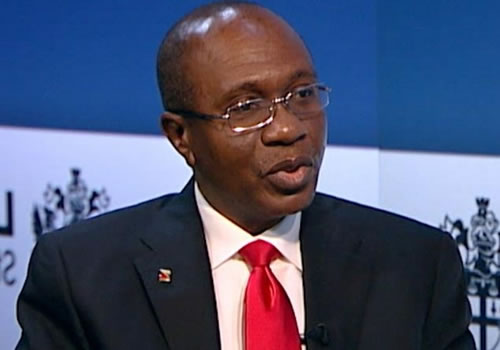 The Central Bank of Nigeria under the auspices of the Bankers’ Committee has concluded plans to use the Bank Verification Number of customers to blacklist loan defaulters from accessing further loans in the nation’s banking system.
The Central Bank of Nigeria under the auspices of the Bankers’ Committee has concluded plans to use the Bank Verification Number of customers to blacklist loan defaulters from accessing further loans in the nation’s banking system.
The CBN Governor, Mr. Godwin Emefiele, made the disclosure at the end of a two-day annual retreat of the Bankers’ Committee in Lagos on Sunday.
The annual retreat had in attendance the CBN governor, deputy governors, the chief executive officers of the Deposit Money Banks in the country, the chief executive officers of development finance institutions, and some key stakeholders in the financial services industry.
Also in attendance during the first day of the retreat were some state governors, namely: Governor Akinwunmi Ambode of Lagos State and his counterparts in Kebbi and Jigawa states, Badaru Abubakar and Atiku Bagudu, as well as the Minister of Agriculture and Rural Development, Chief Audu Ogbeh.
Emefiele said the plan to blacklist loan defaulters came on the heels of the Bankers’ Committee’s decision to increase financial access to Nigerians especially operators in the agricultural value chain and the Micro, Small and Medium-scale Enterprises, as part of the efforts to grow the economy and create more jobs.
The CBN governor said, “We do expect them (customers who take loans) to meet their own side of the bargain because we have a credit registry; their names will go into the black book if they don’t pay. If their names go into the black book if they don’t pay, it means they have ruined their credit ratings. This is because we also agreed at this meeting (the Bankers’ Committee) that we are going to raise the standard of credit bureau and credit reporting in this country.
“We are going to raise the standard to a point where there will be credit scoring for people who take bank loans. And when you are scored low or you are scored zero, we are going to use the BVN to block you from having access to any finance in the Nigerian banking or financial services industry.”
According to the CBN governor, the need to increase finance access to the agriculture and the MSMEs segments to grow the economy is imperative, stating that the SMEs constitute 95 per cent of the businesses in the country.
Emefiele said no amount had been disbursed from the N26bn Agric, SME Fund in the last one year of its existence.
As a result, he said the Bankers Committee had decided to re-evaluate the requirements for accessing the fund, in order to make it easier for more people to access it.
According to him, there are plans to ensure that at least N13bn is disbursed to about 100,000 MSMEs before the end of February 2018.
Listing some of the reviews made to the N26bn fund, Emefiele said, “First, it would no longer be equity fund and we agreed that we should tweak it so that it would be some form of preference share arrangement or like a debt structure which makes it easy for those who want to access it. In terms of pricing, the Bankers Committee said it should not be more than five per cent for those who are going to have it.”
Aside this fund, Emefiele said the CBN would roll out new regulations before January 1 to banks on SME lending generally.
This, according to him, will encourage banks to lend to the SMEs at lower interest rates.
He said, “The reason why banks are showing apathy about bringing facilities to SMEs is risk-sharing issues. They do not want to carry the whole of the 100 per cent of the risk involved.”

